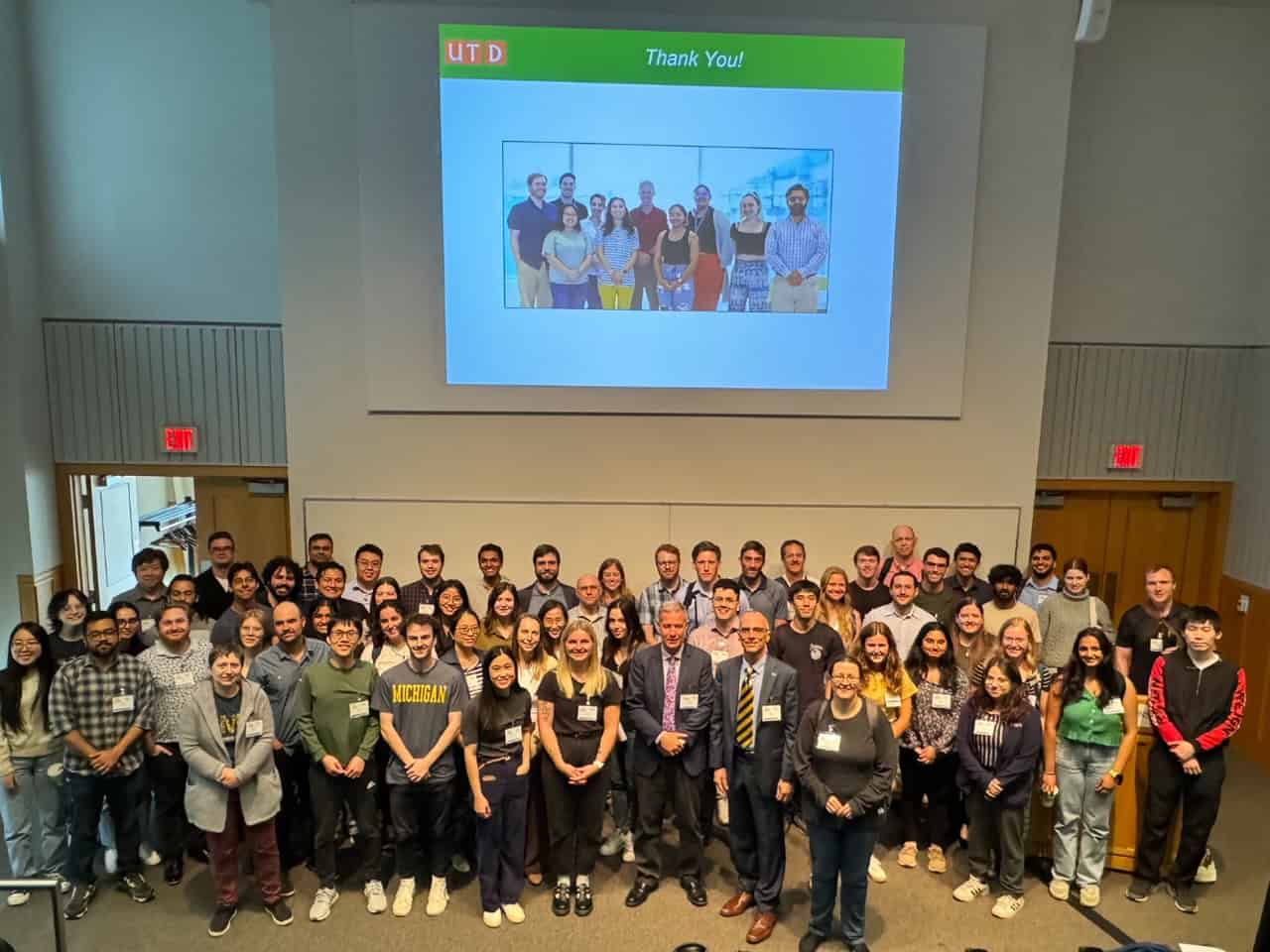
NETP Symposium Provides Networking and Research Opportunities
Joseph J. Pancrazio, Professor and Vice President for Research at the University of Texas, Dallas, was the keynote speaker.

Joseph J. Pancrazio, Professor and Vice President for Research at the University of Texas, Dallas, was the keynote speaker.
About 100 participants attended the 3rd annual Neural Engineering Training Program (NETP) Symposium on May 22 at Palmer Commons.
Following welcome remarks from James Weiland, U-M Professor, Biomedical Engineering, Professor, Ophthalmology and Visual Sciences, and Associate Chair for Research in Biomedical Engineering (Medical School), U-M faculty and students provided updates on their neural engineering research, including a presentation by Pho Hale, who is a 2nd year NETP fellow.
Keynote speaker Joseph J. Pancrazio, Professor and Vice President for Research at the University of Texas, Dallas, spoke to symposium attendees from a mentorship perspective. He noted that he enjoys the opportunity to converse with students over dinner and dispense career advice–”almost like a professional dad.”
Among his top tips:
Following Dr. Pancrazio’s speech and lunch, students presented their research posters. The following students received prizes for their poster presentations:
The final session for the symposium featured six additional neural engineering talks by U-M participants, including a talk by Dr. Julianna Richie, who was a 2nd year NETP fellow and recent Ph.D. graduate.
“This is our third year, and participation in each conference keeps growing,” said Dr. Weiland. “Each year, we incorporate more information, and this time we had an increased focus on neuro-robotics and AI. We look forward to continuing growing our neural engineering research community through events like these.”
NETP 1st year fellows Chandni Rana and Luis Ruiz moderated the talks and organized the symposium. NETP is supported by an institutional training grant from the National Institute of Neurological Disorders and Stroke (T32NS115724) and by numerous units within the University of Michigan.